Tag Archives: intelligence
23 Dec Visual Knowledge Dimensions

Visualizing knowledge in graphs and charts empowers decision makers by giving them actionable knowledge in understandable format. To make this most effective, the labels on the graph must provide clearly defined context cues that make it easy to interpret. Converging data strategies using Big Data (Hadoop, NoSQL, Cassandra, MapReduce…) can change the way we access content […]
10 Dec Measuring Knowledge

Sometimes you need to know about your knowledge. When you’re in the middle of trying to build a system that knows stuff, you may ask, how much does the system know after this training or learning cycle as a percent of the total knowable amount? When we test students in their learning cycles, we use a […]
03 Dec Co-Responsibility in Hybrid IT
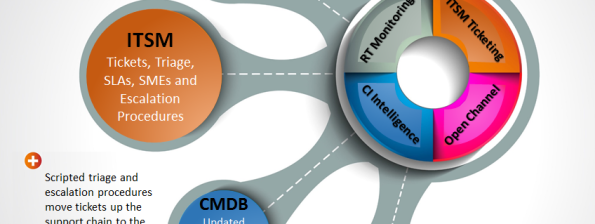
Operational Continuity takes a Village Today’s post departs from my current stream of topics because I am thinking about this subject often lately. I apologize for the ambiguous title, but I think it encapsulates what I want to talk about. “Hybrid IT” is a way of describing the technology supporting an organization in which the […]
17 Oct Neural Conceptual Dependency
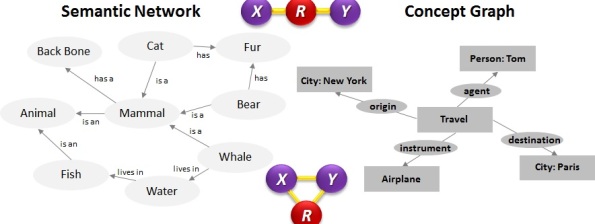
Conceptual Dependency Much of this blog has been about knowledge representation: how the brain might learn and process it, how cognitive functions treat knowledge, and now, how computers may store and process it. Conceptual structures and conceptual dependency theories for computation have been useful for categorizing and representing knowledge in intuitively simple and cognitively consistent […]
14 Oct Knowledge in Non-Neural Models
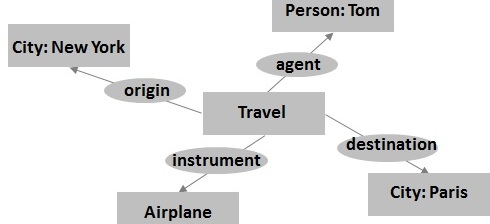
Non-Neural Models So far we have examined a number of models that are explicitly designed to be neuromorphic. This categorization is useful for two reasons: the apparent chaos or non-deterministic functioning of the brain is represented by these models; and neural networks explicitly use large numbers of distributed processors or neurodes that each contribute to […]
15 Jul From Perception and Learning to Logic
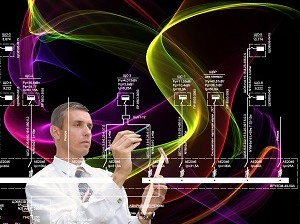
Perception and Learning I am not a cognitive scientist, so all I have said in this section is based on the work of others. On the other hand, I have probably spent more time seriously studying cognition than most computer geeks, and I have tried to form my perspectives around the best of our knowledge. The […]
10 Jun Survival of the Fittest Knowledge
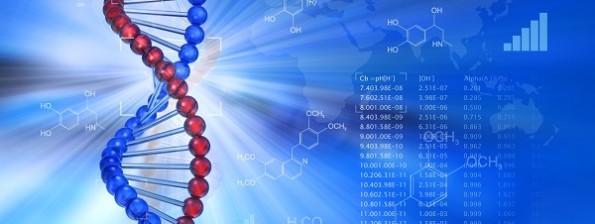
Genetic Algorithms in Search I think we can safely assume that intelligent applications, including accurate language interpreters and translators, will possess large amounts of knowledge to be processed and searched. Genetic algorithms are great for searching for obscure data in massive search spaces. The mechanism for association in computers can be defined as searching, just as humans describe their […]
09 Jun In Search of Depth and Breadth

Depth-First Search Search is one of many functions needed in intelligent systems. Web search in systems like Google, Bing, Yahoo and Alta Vista use complex algorithms to help you find the information you want based on words. Words are patterns of letters strung together in a unique way. Searching is a kind of pattern matching. […]
03 Jun Distributed Knowledge Representation

Distributed KR Knowledge representation schemata may be top-down, or bottom-up. In a top-down approach, one would define an area or domain of knowledge, then list the concepts within the domain and their attributes. Behaviors within the domain are often defined by that domain, and the concepts may not be able to exist independently. This approach helps enforce a […]
27 May Machine Components for Intelligence
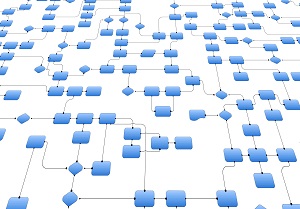
If an abacus or a log and rope can be considered intelligent machines, then we can decompose their parts, possibly rearrange them, and get different kinds of intelligent machines. I know this is an extreme example of absurd reasoning. Let’s go from the opposite direction in the complexity spectrum. Can we use the human brain and its parts as […]




